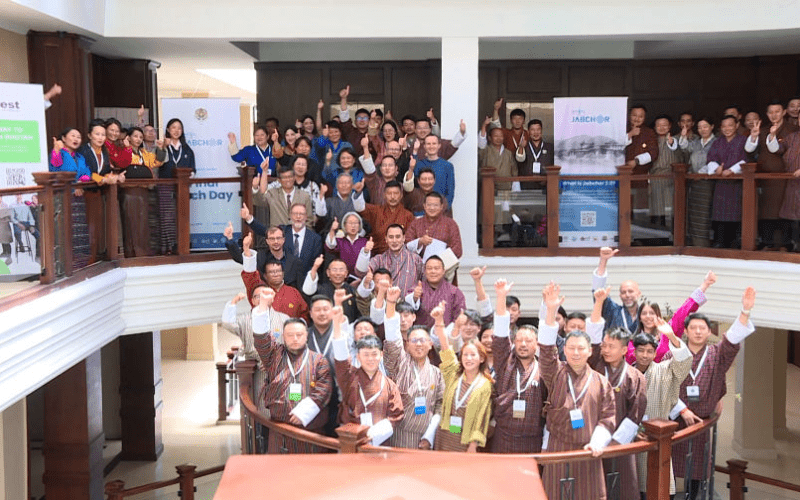After months of mentorship and refinement, Bhutan’s budding entrepreneurs took center stage yesterday in Thimphu for the final pitching round of Jabchor 2.0, a growing platform designed to bridge local startups with both local and international investors. Ten entrepreneurs pitched their business ideas — and eight walked away with a total of 15 signed Expressions of Interest (EoIs).
The equity-based financing platform, launched just two months ago, is an initiative of the Department of Employment and Entrepreneurship, in partnership with Innovest. Funded through the Economic Stimulus Programme, Jabchor 2.0 focuses on enabling startups in manufacturing, information technology, services, and green sectors to access investment — especially those unable to secure traditional collateral-based loans.
Yesterday’s pitching event was the culmination of a journey that began with 28 initial business ideas. After rigorous expert mentoring, only ten made it to the final round. Of these, eight successfully signed EoIs on the spot, including five agreements secured during a virtual session. The remaining two entrepreneurs also attracted investment interest during the same online pitch.
Among the standout ventures was BillsToTrack.com, a cloud-based SaaS platform developed by entrepreneur Bishal Dhakal. His product eliminates the need for paper receipts by allowing businesses to issue digital receipts via WhatsApp and email. Seeking Nu 2 million to expand operations, enhance branding, and build his team, Bishal offered 20 percent equity — and secured four investors.
“I want to build a strong team and make this platform popular not just in Bhutan, but beyond,” said Bishal. “Thanks to Jabchor, I now have the resources and guidance to scale.”
Another success story came from Kingdom Essences Private Limited, co-founded by Kuenga Dhendup. The business produces essential oils and wellness products sourced from Bhutan’s highland flora. Kuenga emphasized that Jabchor was instrumental not only in securing investments but also in helping the team understand sustainable business practices.
“The programme opened new avenues for us — from understanding markets to learning how to fully utilize our natural resources,” he said.
AgroNest Centre, a sustainable farming venture from Bongo, Chhukha, also drew investor interest. The centre supplies fresh and smoked trout to hotels and restaurants and now aims to expand into Bhutan’s high-end hospitality and health food markets. Founder Kumar shared how Jabchor reshaped his business outlook.
“Before Jabchor, I was thinking small. Now I know how to secure foreign direct investments and how to take Bhutanese products to international markets,” he said.
While the EoIs are not binding, they serve as critical stepping stones. Businesses must demonstrate viability to secure actual funding, with formal agreements expected within 90 days of signing.
Jigme Tenzin, Co-founder of Innovest, underscored the platform’s dual support system. “Investors can trust their investments are well-guided, while entrepreneurs continue receiving mentorship even after the investment stage,” he said.
The programme’s long-term vision was echoed by Chumo Wangmo, Chief Programme Officer at the Department of Employment and Entrepreneurship. “We aim to institutionalize this platform to help entrepreneurs grow and attract serious investors looking for viable ventures,” she said.
For those who didn’t secure investment this round, all is not lost. Organisers noted that these startups could still pursue crowdfunding or apply for listing under the Royal Securities Exchange of Bhutan’s SME board.
As Jabchor 2.0 closes this season on a high note, it is clear that Bhutan’s entrepreneurial spirit — with the right support — is ready to meet both local and global markets.








